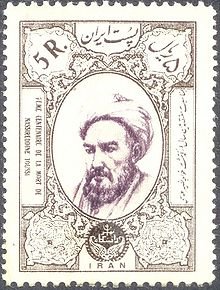Nasir al-Din al-Tusi: The Scholar Who Revolutionized Science

Nasir al-Din al-Tusi (1201–1274) was a towering figure of the Islamic Golden Age, contributing significantly to astronomy, mathematics, and philosophy. His Tusi Couple revolutionized planetary motion, influencing Copernicus. As a mathematician, he pioneered trigonometry as an independent field. His philosophical work, Akhlaq-i Nasiri, shaped Islamic ethics. Despite political turmoil, he thrived under Mongol rule, founding the Maragha Observatory. His legacy endures in modern science, making him one of history’s most influential scholars.
Early Life and Education
Nasir al-Din al-Tusi was born in 1201 in Tus, Persia (modern-day Iran). From an early age, he showed a deep interest in knowledge, studying under prominent scholars in various disciplines. He mastered mathematics, astronomy, medicine, and philosophy, drawing from Greek, Indian, and Islamic traditions. His education flourished despite political unrest, including the Mongol invasions. Eventually, he gained recognition for his intellect, leading to his association with the Mongol court and the establishment of the Maragha Observatory.
Scientific Contributions
A. Astronomy
Nasir al-Din al-Tusi revolutionized astronomy with groundbreaking theories and observations.
- Tusi Couple: He developed a mathematical model that explained planetary motion more accurately, later influencing Copernicus.
- Maragha Observatory: Under Mongol patronage, he established one of the most advanced observatories of his time, refining astronomical measurements.
B. Mathematics
Tusi made significant contributions to trigonometry and mathematical theory.
- Trigonometry Advancements: He treated trigonometry as an independent discipline and introduced formulas for spherical trigonometry.
- Algebra and Geometry: His research improved algebraic methods and geometric principles, influencing later scholars.

Philosophical and Intellectual Contributions
A. Philosophy and Ethics
Beyond science, Tusi’s works shaped Islamic thought and moral philosophy.
- “Akhlaq-i Nasiri”: His seminal text on ethics explored morality, governance, and personal virtue.
- Islamic and Aristotelian Thought: He blended classical Greek philosophy with Islamic perspectives, influencing later intellectual movements.
Legacy and Influence
Nasir al-Din al-Tusi’s scientific advancements laid the foundation for future developments in astronomy and mathematics. His Tusi Couple influenced later astronomical models, including those of Copernicus, contributing to the eventual shift from Ptolemaic to heliocentric theories.
His impact extended beyond science, shaping Islamic philosophy and ethics through works like Akhlaq-i Nasiri. His writings were later studied by European Renaissance scholars, bridging Eastern and Western intellectual traditions. Today, his contributions remain recognized in modern science, with his name honored in lunar geography and mathematical history.
Conclusion
Nasir al-Din al-Tusi’s pioneering contributions to astronomy, mathematics, and philosophy establish him as one of the most influential scholars of the Islamic Golden Age. His advancements, particularly the Tusi Couple, shaped modern astronomical models, while his work in trigonometry and ethics bridged diverse fields of knowledge. By blending classical wisdom with innovative thought, he played a crucial role in the evolution of science and philosophy, ensuring his enduring legacy as a transformative intellectual figure in history.



